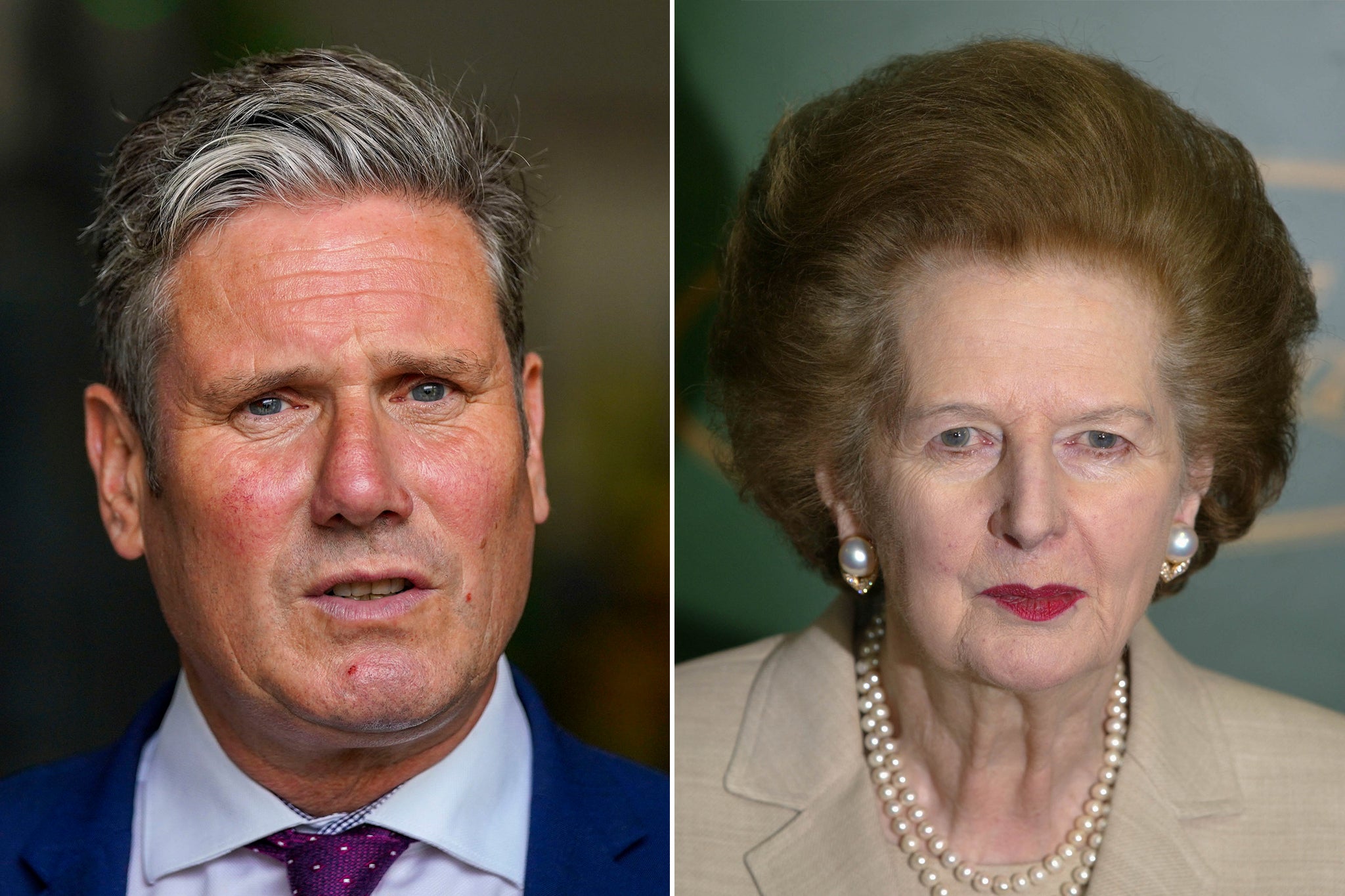So now Starmer says Thatcher was ‘terrible’… make your mind up, ‘Sir Flip-Flop’
If the Labour leader wants to win the respect of voters, he must pick a message and stick to it. And that includes his headline-grabbing soundbites, writes John Rentoul


If Keir Starmer wanted to give credence to the Conservatives calling him “Sir Flip-Flop”, he could not have done a better job. Just days after securing a rich crop of headlines for his praise of Margaret Thatcher, he now says she “did terrible things”.
That is not just a flip-flop – it is a triple axel, in which the skater takes off going forwards, spins and lands skating backwards. It is technically accomplished, but it means he was facing one way and is now facing the other.
Only last weekend, the Labour leader wrote in The Sunday Telegraph that Thatcher “sought to drag Britain out of its stupor by setting loose our natural entrepreneurialism”. It didn’t sound as if he was saying this was a bad thing.
Indeed, everyone realised precisely what he was doing, namely copying the Tony Blair approach of contradicting expectations of Labour leaders and laying claim to large tracts of the centre ground. It was controversial in the Labour Party precisely because praise of Thatcher, not to mention of “entrepreneurialism”, still annoys some of the same kind of people that Blair annoyed.
In fact, it was so controversial that even John McTernan, who was Blair’s political secretary in No 10, said he thought it was counterproductive. It wouldn’t impress any floating voters, he said – because there aren’t any, as they have all come over to Labour already – and it will only upset Labour partisans, whose enthusiasm Starmer needs.
McTernan’s was a rather un-Blairite argument. Blair himself was even further ahead in the opinion polls before the 1997 election, and still fought for every vote, and tried to win over Tory-minded voters – or even Labour voters who had a high opinion of Thatcher, or who at least respected her for her firmness of purpose.
That is all I was saying, Starmer protested defensively when he was challenged at a Labour gala dinner in Glasgow last night. Asked by a member of the audience if he was a fan of Thatcher, he took fright and ran for the hills: “No, absolutely not. She did terrible things, particularly here in Scotland which everybody in this room, myself included, profoundly disagrees with.”
Starmer’s attempt to try on the mantle of Blair ended in this ignominious tangle. It sounded as if he didn’t have the courage of Blair’s convictions, and retreated at the first opportunity – well aware that Scotland is the most difficult place to sell an “I love Thatcher” message.
But he could have modulated it more elegantly. Even in Scotland it should be possible to explain that you admire Thatcher’s conviction and determination, and that you respect the way she changed Britain, even if you didn’t agree with many of her policies. Blair always managed to get that message across, even in Scotland, where the Scottish Labour Party sometimes gave him a hard time.
He was able to tell a partisan audience what it didn’t want to hear, and explain why, and earn grudging respect from at least some listeners. Starmer has some way to go before he can claim to be the heir to Blair.
The way that Starmer has lurched from Thatcher cheerleader to critic in a few days will not appeal to the different audiences who agree with one message or the other. It will make him seem insincere to both groups.
It is no use his explaining that both his statements can be true. He could admire the letting loose of entrepreneurialism and think that almost everything else she did was terrible. That is a respectable intellectual position. You could think that curbing the excessive power of union leaders was a good thing and that high interest rates were terrible, but that would require some explanation.
Politics tends to be painted in primary colours, and Starmer has just switched from black to white (or vice versa). This doesn’t look like principled leadership; it looks like cowardly opportunism.
Join our commenting forum
Join thought-provoking conversations, follow other Independent readers and see their replies
Comments
Bookmark popover
Removed from bookmarks